Book Reviews by Genre: Literature
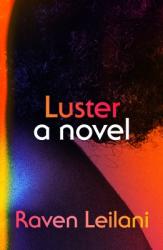
If it weren’t so gorgeously written, it’d be too wincingly real to read. I felt deeply connected to Edie in all her messiness and compulsive curiosity. Leilani’s characters are all their own: weird, self-possessed, sort of perverse, clearly loved into being.
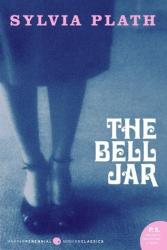
You will understand why she was so depressed and attempted suicide three times after reading this novel. It tells the tale of a young girl who suffers a lot throughout her entire life. All the events of her life are beautifully executed with the help of Easter's character in this novel. Sylvia wants to be a poet, but society forces her to be a housewife, have children, or someone else. Sylvia Plath's father dies when she most needs him. Being without a father means you are alone with creatures in this cruel world that does not care about anyone. She seems very lonely, and sometimes she feels like she is in a bell jar, like a dead baby. She is depressed by the silence. It is not the silence of silence, it is her own silence. The novel also depicts the situation of women in the 1940s they were supposed to do what their men wanted them to do. If the person is loyal, he should get the same person, but that is not the case with Slviya Plath. Every boy friend she finds has an affair with another woman. She sacrifices her body for the peace of mind and her virginity for the sake of experience.
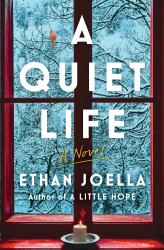
A Quiet Life by Ethan Joella is an emotional, heartwarming story about human connection. Joella’s story tackles grief and loss, all the while remaining light-hearted and hopeful. A Quiet Life takes on the perspective of three different people, all struggling with their own hardships and trials. Chuck, an elderly man mourning the death of his wife, must decide whether or not he should venture back to their vacation home for their yearly trip. The pain is too much to bear, and imagining himself being there alone is heart wrenching. Ella, a single mother working a newspaper job, is trying desperately to find her missing daughter. Kirsten works at an animal rescue and tries her best to serve the community. However, after the quick and tragic murder of her father at a convenience store, Kirsten can hardly find the light in life again. A Quiet Life shows the intricacies and hardships that come with loss, all the while connecting every missing piece, and showing us how togetherness is what keeps us afloat.
(Reviewer Grade: 12)
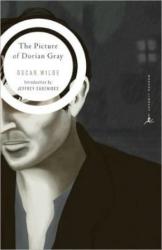
At first, I only picked this book as a classic for school, but I quickly learned it's a classic for a reason. I'd known of the general plot of the novel where a portrait reveals the ugliness of the inside of a man while he remains young, but the way it's written and described makes the full story. The story starts with painter Basil basically putting so much work and devotion into a portrait of Dorian Gray, the painting comes to life. Dorian wishes to stay forever young, and the painting reflects his evilness (vanity, etc.). I enjoyed the sense of mysticism and how everything connects to the theme of appearances are not what they seem. Dorian looks beautiful, but his actions (the thing that makes a person) are grotesque and horrid. The gothic fiction genre is reflected by the dark evilness of Dorian's actions and the magic of the portrait. This book is my favorite class I read this year and the plot surprised me with the characters always returning and a sense of incompletedness when characters leave. If you're looking for a medium-read classic with thought-provoking ideas, then this is for you!
Reviewer Grade 12
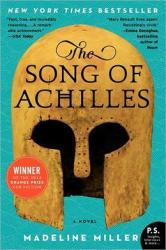
The Song of Achilles was written in 2011 by American writer Madeline Miller. It is an adoption of Homer's Iliad and is a retelling of the great Greek warrior Achilles. The tale is told from the perspective of Patroclus. The novel follows the romantic relationship between Patroclus and Achilles as it is written in the novel.
*"He is half of my soul, as the poets say."*
*Madeline Miller, by using their relationship, is trying to show the role of men in ancient Greek society and how homosexuality was viewed in that era. The most pleasing thing about this novel is Miller's poetic writing and how beautifully she has painted the vivid picture of the emotions of all the characters, and it has taken me into another world while I was reading.
There are some debates that have been going on for centuries until today. For example, the relationship between Patroclus and Achilles has been debated for centuries, and still there is no clear evidence of whether they were lovers or close comrades. The second one is that Helen was the cause of the Trojan War, and destroying thousands of ships and men just for a woman is foolishness. As Dr. Faustus says:
*"Was this the face that launched a thousand ships and burnt the topless towers of Ilium?"*
Mean by there, is she that much beautiful that kings are willing to destroy anything?
The novel also contains many themes. The first one is *"honour and pride".* Achilles fights for his honour because he wants his name to be remembered, in the same way Agamemnon and Menelaus fight for their pride, which they lost when Helen was kidnapped by the king of Troy. For Greeks, honour and pride is everything, and they prefer to sacrifice their lives over honour and glory. They believe that sometimes violence is needed to prove one's pride. As it is set down in the text:
" *The sons of Troy are known for their skill in battle, and their deaths will lift your name to the stars."*
The second major theme is *impulse to show power*. Achilles, Agamemnon, and Menelaus fight for power and want to have control over their lives; one of the biggest reasons for participating in battle is to showcase their power. Besides this,the powerlessness of women like Helen, Briseis, and Deidmeia can be seen in the novel. Agamemnon treats Briseis badly as a wench or a war prize, and also, Helen is forced to choose a husband even though she doesn't want a husband.
*To conclude* , the novel is a wonderful piece of literature and deserves to be read because the way Medellin Miller has described all the events and feelings of all the characters makes you feel the same.
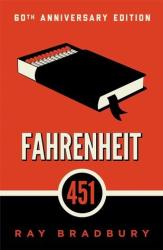
451͒ Fahrenheit is the temperature when paper starts burning. Guy Monteg knows it for sure. He’s a fireman. However, his job is not to put out the fire, but to make it and burn the books. He likes his job, but there is something that he hides from everyone, including his wife.
From every fire, Guy saves a book. In his society, books are forbidden, as they are considered to make people unhappy, evolving complicated emotions and making the readers think. No books means no worries, but a careless life, full of joy and simple entertainment.
One day, Guy Monteg decides that he does not want to live like he used to anymore. He finds a former English professor and asks to teach him to understand what he reads about. Together, they make a plan to save more books in the hope that war will destroy the existing system that they have to live in.
But any secret becomes clear, and the next night Guy gets an order to burn his own house. He destroys it with a flamethrower, as well as his captain, co-workers and the Mechanical Hound.
Monteg escapes. He does not know though, that after all the dangers on his way, he will finally find his destination and meet those whom he will belong to.
It may be hard to feel, but the book is sharp and straightforward. Through the adventure in a fictional universe, Ray Bradbury shows us what might happen, if humanity keeps moving in a direction that will only satisfy basic needs and bring momentary pleasures. I’m sure, some of us can already recognize ourselves with shame in Beatty or Mildred. We’ve already made that first step on the path to the world, where people burn books. This dystopia teaches us that we can always make a difference in the world and change our lives the way that we believe is right. There will be those who will try to destroy you, but there will also be those, whom you will be able to rely on.
The novel creates a tense engaging atmosphere, where you can smell threat in the air and hear the chase behind your back. It does not let the reader go till the very end and stays in mind days after.
Reviewer Grade: 11
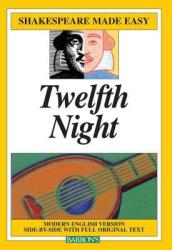
Great book! It's actually so hilarious because of the love triangle. Highly recommended!!
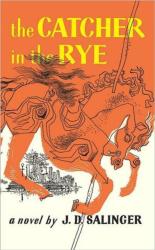
I don't understand why this is a classic. I only vagally understand the book. the main character, Holden Caufield, doesn't learn anything. I can't see any reason to read.
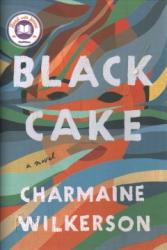
This book is a about a family. More specifically their mother and the life she has. While reading this book you are learning about the mom and how the connections she had to different people. This book has so many twists and turns that will keep you on your toes. I choose to read this book because it seemed interesting to uncover all the mysteries that were going on in the book. It seemed fun to piece together a story. In this book I really liked the element where the characters also didn't know everything about their mom. They were learning it along with you. I didn't like that the timeline was hard to follow along because sometimes it would randomly say something from a different part of the story which sort of confused me. I think you would enjoy this book if you like piecing together things to find out the whole story of what happened to someone you would really enjoy this book.
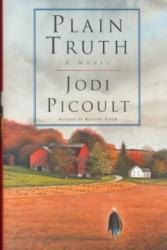
This book tells an amazing story. Picoult is an amazing author who has a way of keeping readers on the edge of their seat. And this book is no exception. It's an emotional rollercoaster but at the end, you've really enjoyed the ride.
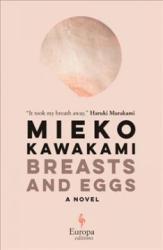
Breasts and Eggs, lengthened from its original version, is a breakthrough piece for Mieko Kawakami, but also for the literary world. Her masterful prose is able to capture the attention of any reader, and draw anyone into the worlds she creates. The book is centered around a family of low-income Japanese women, battling their way through life and facing poverty, the image of their bodies, each other, and their desires for the future. Each conversation is written as if it's taking place in the readers' living room, and each sense is captured on every page. Kawakami works through seemingly every contemporary issue effortlessly, putting each piece into place within the story, instead of unnaturally breaking the flow of her storytelling She plays with issues of fertility through a character whose journey should, on paper, be shocking and different than anything readers have seen, but does it in a way that makes it feel real and beyond possible. The book is so fantastic that it could be read in a day if readers can't make themselves put it down, but it would be a rollercoaster of a day.

Interpreter of Maladies by Jhumpa Lahiri is a collection of nine short stories about cultural differences. In each of the nine stories, the beautifully composed characters are taken through inspirational journeys, whether conflicts about romance, communication, cultural differences between India and America, or separation. Not all endings are happy, but a lesson can be learned from each story. It is a must-read book that challenges cultural differences and will transform a mindful reader's perspective. Overall, I would rate the book five out of five stars.
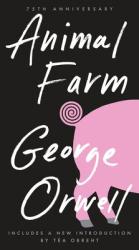
Animal Farm by George Orwell is a novel following a group of farm animals who want to topple their human farmer's regime, creating a society that is perfect for themselves. While Animal Farm starts off a bit ridiculous, using pigs and other farm animals as the main characters of the story, I think that Orwell using farm animals to explain the message of his story was actually very imaginative, and made the story much more intriguing and unique. Since Animal Farm's main theme is about revolution and the obstruction of democracy, I enjoyed analyzing the symbolism that was placed in the novel, seeing the hidden parallels between the farm animals and the historical events that were occurring during that time. I liked being able to link events from the story to real historical events, such as the communist movement, the Soviet Union, and World War 2. Personally, I think that Orwell's technique in linking his novel to these historical events by using only symbolism was very creative and was written in a very thoughtful and intelligent way. Seeing how some of the book events contrasted with historical events was very strange and interesting for me, and it made me wonder how Orwell could have even thought of linking the two subject matters by only using farm animals.
Overall, I would recommend this classic novel to anyone who is open to an interesting and thought-provoking read.
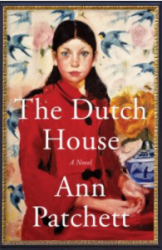
I enjoyed this audiobook quite a bit during long commutes - Tom Hanks' soothing voice envelops you as he tells the story of Danny & Maeve as they grow and experience many of life's common hardships, and the many lines that can be traced back to The Dutch House. I am partial to books with observable character development, and I felt that was seen for a few characters within the novel. I would recommend this book.
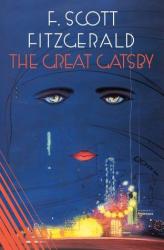
A classic novel about the "American Dream," and the qualms of social classes, this 1925 based story is centered around four main characters. Nick Carraway, Jay Gatsby, and Daisy and Tom Buchanan. This novel was written in a way, where all four of these characters come from different social classes and walks of life. We are given insight into the personal lives, fears, and secrets that each of these characters carries with them, and as we slowly begin to know all of these characters' stories, Fitzgerald immediately throws us for a loop. The Great Gatsby unearths every little dirty secret every character in this novel hides and turns all of our familiar characters into something much more sinister. The Great Gatsby speaks volumes on the importance and issues of social classes, and the so-called "American Dream." All in all, a highly renowned classic, The Great Gatsby lives up to its fame and delivers beautifully written lines and shocking twists.
Reviewer Grade: 11
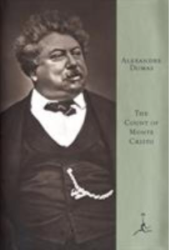
The Count of Monte Cristo" by Alexandre Dumas is a fantastic whirl-wind of unforgettable characters and interweaving story-lines that left me awestruck and yearning for an even deeper glimpse into this world of treachery, romance, adventure, and mystery. This book is as deceivingly witty as it is over-flowing charisma and has nestled its way to a special place in my heart as one of my favorite novels of all time.
The novel starts out with a scenic over-look of an Italian waterway in Marseilles as it carries along a lofty ship named Pharaon with one passenger in particular who is unlike any other named Edmond Dantès. A dashing young and honest man dawning with potential who has just returned with news that will change the course of his life, and the lives of many others, forever. He is falsely accused of traitorous activity and is sentenced to life on a prison located on an island off the coasts of Marseilles forcing him to leave behind his family, his friends, and the love of his life Mercédès. This marvelous tale unfolds within the walls of this prison and among its outer-walls as Dantès attempts to make a dashing escape with a kind mannered preacher. But, this is only the beginning of his tale. As the life of Dantès unfolds, so does the life of the many others who have been lucky enough to fall into his life.
This novel is truly unforgettable as it follows not only the life of Edmond Dantès, but also the lives of his lover, best friend, family, and even his partners from his shipping company. Filled to the brim with treacherous plots, revenge, heartache, mystery, and pirating; it also contains young love, faith that knows no bounds, and families filled with the knowledge that blood truly is thicker than water.
I would recommend this book to anyone looking to fall in love with not only a menagerie of unforgettable characters, but to a reader who is looking to fall head-first into a world that they will find themselves cherishing forever. Many blessings and happy reading : ),
Reviewer Grade Level 11.
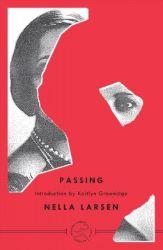
Passing by Nella Larsen is a classic novel following Irene Redfield and Clare Bellew. The novel follows the timeline of the Harlem Renaissance and delves into themes of 'white-passing' amongst the black community.
Irene, the narrator of the novel considers herself to be a very levelheaded, calm, thoughtful woman, who looks out for her children and is a perfectly attentive wife. Clare Bellew on the other hand is Irene's childhood friend, and her personality is much more colorful than Irene's. When Irene and Clare reunite after many years, we delve into their complicated relationship and clashing personalities.
Passing is a novel that illustrates what the standards of beauty really are and educates readers on the logistics of what passing of as white can mean for a black woman back in the 1920s.
I really enjoyed reading this novel, as 'white-passing' was something I wasn't super aware of, and barely even knew it was a phenomenon in the 1900s. Larsen also created a very interesting dynamic between Irene and Clare and crafted very realistic characters. I enjoyed reading Irene's inner monologues, as it's pretty rare to see an author build up very dynamic characters, that are also painfully human. I would recommend this book to pretty much anyone, as it contained lots of powerful messages and themes, without coming off as cliche or overdone.
Reviewer Grade: 11
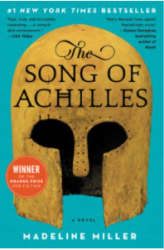
I initially picked this book after seeing all the clout it was getting, as I'm sure many have noticed, it's popularity is unmatched. I walked into reading the story with a raised eyebrow, unsure if it would live up to its hype. It did. The story closely follows the Greek invasion of Troy after Helen is swept away by Paris, and if you have read the Iliad, then I am sure you already understand the plot. What differs from the work of Homer, however, is the pace at which Miller writes and the story she pushes. It is a beautiful rendition of war, love, and heartbreak. Between fighting battles and training with Chiron, Miller shows the sides of these famous heroes we all guessed at but never saw-- from running along a sun-warmed beach to tearing out hair, you will never be as deeply connected to characters as you will while reading this. My favorite part about this book was how beautiful Miller's incredible prose and the scenes that are forever engraved in my head: Thetis touching the chin of Achilles, Patroclus's hands on the gold of well-known armor, and a stone memorial built on the greatest hill, two figures standing side by side nearby it. This is not only one of the top book's I've read this year, but nearly the best book I've read in my entire life.
Junior-11
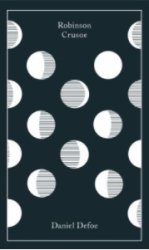
Review of Book R. Crusoe
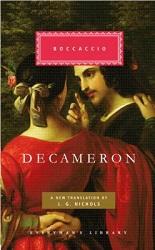
In plague struck Italy around the 1350s, 3 young adult boys and 7 teenage girls as well as their servants hide out in various castles while telling each other stories to pass the time. Each of them has to tell one story per day. For each day there is a new theme decided by the"ruler" of that day. These themes include; Misadventures with happy endings,Tragic loves, Bawdy loves, Munificence, and Avoiding Misfortune with witty remarks.
Though this is a good and classic book it is not for everyone due to it having mature sexual themes, so if you do not like such things either dont read this book or stick to the days that arent about things like those... also watch out for Dioneo's stories because he can say a story on whatever he likes. Alltogether a good book if not for everyone.
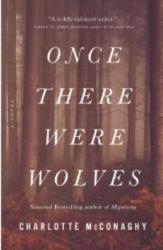
Once There Were Wolves is a story about a biologist leading a team of scientists trying to reintroduce wolves into the highlands of Scotland in order to heal the damaged ecosystem of the area.
Main character, Inti (the biologist), has mirror touch synesthesia which is a rare condition where a person feels a similar sensation in their body to the physical sensation another is actually feeling. Inti is independent, determined, and single-minded. When it comes to the reintroduction of the wolves to the area, she will not let the local farmers deter her, even as the wolves pose a serious threat to their animals. And things get a little hairy.
The present day scenes unfolding this story are interspersed with flashbacks of Inti's childhood and trauma she experienced as a young girl.
This is a beautifully told story with interesting characters, a strong environmental theme, and a bit of mystery. Once There Were Wolves was my first Charlotte McConaghy book and I will definitely look for more!
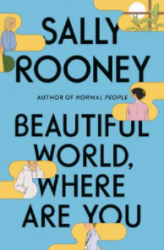
I have favorite authors, like anybody else. There are authors I don't care for, authors I just kinda like, and authors I get excited about. But, then there are authors that I have a certain warmth for that is different than just excitement or interest. That feeling can be hard to describe, but Sally Rooney pulls that feeling out of me. There is something in what she writes about and the way she writes it that just gives me those feels. That warmth started with Normal People and was solidified with her latest release, Beautiful World, Where Are You?
Beautiful World, Where Are You? is one of those pesky novels that has no quotation marks and minimal paragraphs, both of which lend to a stream-of- consciousness feel, so consider yourself warned.
It explores the daily life and thoughts of two friends, Alice and Eileen, told often through letters they write to one anotleor. Both of the women, and their love interests, are deeply flawed and true-to-life, working through relationships (even with one another) that are confusing, and messed up and imperfect. Part of the beauty of this book is that their issues are our issues, and their lives have an aimlessness that mirrors how real life can feel sometimes. There is a deep search for purpose and meaning in this book. It felt real, and in that sense, if you are looking for your books to help you escape reality, Rooney might not be the author for you.
But, the ways Sally Rooney is able to zoom her scenes out and beautifully describe the world surrounding her characters, is absolutely lovely.
Of note is that this is the first book of fiction I've read that has addressed daily life during the pandemic, and, after reading it, I look forward to reading more books with that backdrop.
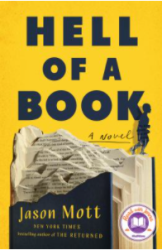
The premise of the book Hell of a Book by Jason Mott is as follows: an African American author has written a book and is touring the country to promote it. On his tour, he keeps encountering the same small child everywhere he goes. I can't say much beyond that without giving too much away.
This book recently won the 2021 National Book Award for fiction and I just don't think my review of it will do it justice. Not only that, but I hate writing overly exuberant reviews of books that are this unusual, because not everybody is going to love this book. Or understand it. But, that's the whole point, I think.
It's unusual. It's transcendent. It's elusive. It's ironic. It's deep. It's moving. It gives you tons to think about but very little to grasp onto.
I absolutely loved it. And I already want to read it again.
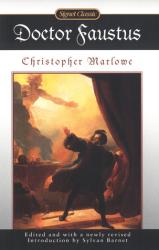
Doctor Faustus by Christopher Marlowe is an amazing study of enlightenment views on religion, morality, and social structure, all wrapped up in a fascinating tale of the supernatural. Doctor Faustus makes a deal with the Devil in exchange for power and knowledge, but, as a result, he constantly wars with himself. On one side, Faustus wants to repent his actions and avoid damnation, however, Faustus also is driven on by his greed and arrogance to pursue his dark arts and continue fulfilling his desires, visiting places such as the Papal and Imperial courts, leaving only after he has achieved his mischief. The story is amazing when considered within the historical context of its writing, the enlightenment philosophy and religious teachings show throughout the book, pitting the Old Testament views of damnation and repentance against the more forgiving views of the New Testament. I would highly recommend Doctor Faustus to those seeking to learn about the enlightenment and 16th century culture.
Harrison
Grade 12
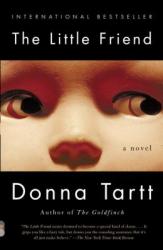
The Little Friend is a story about family, loss, remembrance, and childhood. It all rotates around a mysterious tragedy in the Dufresnes family, where the youngest boy, Robin, was found strangled and hung in a tree out back. Years later, his precocious younger sister Harriet is determined to find the killer. In her quest, she tangles with snakes and water towers and drugs and family trauma, all shown through the eyes of a bright and, for now, innocent child.
The reason this book gets a three is not because it is a so-so book, mediocre in all avenues but largely strung together enough to earn the title "Pretty Good". This book was fantastic. And bad. And thrilling. And boring. And gloriously written. And horribly structured. I read this because Donna Tartt wrote it, and I love her writing style. This style came alive in her book undoubtedly, but any future readers should be warned that the writing, and the characters, are the only things of substance in this story. The writing is prosaic and setting appropriate and beautiful and heart wrenching and perfect. The characters are so fleshed out and developed that when you're reading you can hear them breath. But that is it. The plot is nearly insubstantial, or at least insignificant. On one hand, I read this whole book and found no story of relevance. On the other hand, through the writing and the characters and the subtle morals and stories along the way, I was pulled through an entire book where I found no story of relevance. Would I recommend this? It all depends on you. If you want a story that all ties up loosely and leaves you happy and fulfilled at the end, I would say no. But if you want a tale that is so realistic and magical that you can't take your hands off the strange, wonderful pages, then I would say go for it. All in all, this book earns three stars for being nearly incomprehensible, and yet, one of the most meaningful books I've ever read. I loved it, and I will never read it again.
Reviewer grade: 11
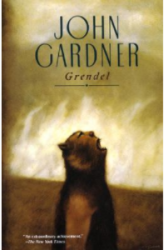
it was the worst book ever. pointless.
*spoiler alert* Beowulf is ugly and mean and rude and abusive and does not understand the concept of consent it made me cry for days what's the point of a book if it has the stupidest ending ever created.
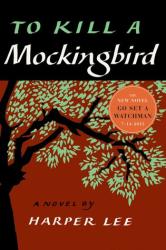
To Kill a Mockingbird by Harper Lee is a novel about Jean Louise Finch (Scout), living through her father Atticus' controversial decision to defend a black man in court. Along with experiencing the tribulations of racism in her home town of Maycomb County, Scout, her brother Jem, and her friend Dill explore the curiosities of the town and investigate the mysterious Boo Radley. The plot gave me excitement to continuing reading, and the joining of the two plots at the end created a perfect ending to the story. I thought that the book was really good due to the knowledge that was gained about the history during the Great Depression and the progression throughout the book that helped develop the main character. This was a school required book, but I would definitely recommend it to readers in high school and above.
Reviewer Grade: 9
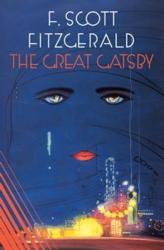
F. Scott Fitzgerald's "The Great Gatsby" begins with a straightforward introduction to its main character and narrator, Nick Carraway. Nick fancies himself a man of high morals and while he does not always succeed, he tries his best to adhere to his principles at all times. Nick comes from a prominent family in a middle western city; however, after fighting in the Third Infantry Division during World War I, Nick tires of the monotony of the Midwest and goes east — to New York — in order to learn the bond business and in pursuit of more adventure. Nick settles in West Egg, a village that is described best as housing those who are "new money," and is a direct counterpart to East Egg, home to New York's most elite. It is in New York that the we are introduced to Daisy Buchanan, Nick's cousin; Tom Buchanan, Daisy's husband and Nick's former schoolmate; Jordan Baker, the Buchanans' close friend and renowned golfer; and finally, to Jay Gatsby, Nick's neighbor and the titular character of the novel. Nick becomes entangles within the affairs (both literal and figurative) of these characters, as both his fascination and friendship with Gatsby grow.
At face value, "The Great Gatsby" may appear almost to be a soap-opera, but in truth, it is the very opposite. Much like its characters, beneath its shimmering facade, "The Great Gatsby" houses profound and poignant messages and themes — about societal roles, the ever-elusive American dream, and human nature.
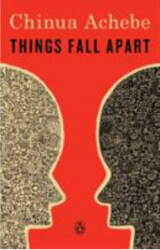
In things fall apart we met the main character, Okonkwo, who once gained fame and respect by his village of Umuofia. Okonkwo is an ambitious man within the Umuofia clan of the Igbo tribe. By the time the British colonial administrator arrives everything that Okonkwo holds dear becomes threatened after an accidental shooting. Okonkwo must flee with his family from his beloved village for seven years, losing the life that he worked so hard to gain. He gets through his seven years of exile only to go back home and discover that everything has changed. White missionaries have come to convert Africa to their ways. we liked Things fall apart because it had this idea that capture African culture, specially Nigerian culture. Okonkwo is an interesting character because his unwillingness to adapt to the new change represents an internal struggle many pre-colonized Africans faced in the wake of colonization. The ending is symbolic because it represents the ultimate death of culture as a result of European exploration. Overall, the writer tried to make us see how Africans struggle to keep their culture and identity from colonization.
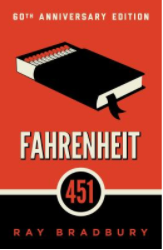
"Fahrenheit 451" is a short story that tells about Montag's transformation from finding a pleasure in burning books, to loving books and all the knowledge that comes with it. Montag lives in a society where the government has forbidden to read books and seek knowledge through writing. Montag is part of a group called "Fireman" who are supposed to put out fire, but that's not the case since they do the opposite. He lives with his girlfriend and has a bad relationship with her. They don't really talk and just look after themselves. Deep down, he cares for her, we'll find out when Montag gets home and see she's fallen over because of an overdose, where he called the ambulance and the police. At the end of Fahrenheit 451, Montag escapes the city and joins a small community of survivors who have successfully fled the repressive society and are dedicated to memorizing books. The group is moving north to start anew, and for the first time in his life Montag has a future to look forward to.
The short story is one of the few books I find interesting. Usually, I do not read many books and definitely not with the genre "dystopia". If you compare this short story to the society we live in right now, you can see they are opposite to each other so for me it is very interesting to hear how the people in "Fahrenheit 451" were dehumanized. The introduction was very boring, but the further you got into the short story, the more interesting it became. In the end, someone was really good. I still think this short story is relevant to us today because it proves what good conditions we live in, and I certainly appreciate more the privacy and freedom I have. "Fahrenheit 451" has a lot of themes, such as the power of books, because you can really see how much a book can have meaning. All the power a book may have manifested in this particular short story. There are also other themes, such as, Loss of Individuality, Role of Technology and ignorance and Knowledge. All these themes have an important meaning in this short story.
After I read this book, I was trapped by the dystopian world and all the social problems they had. I wonder a lot what our society would look like if the government had banned reading books, would I have read this?